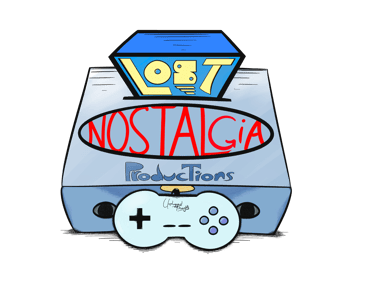
Nintendo's Revelations
People love Nintendo. Religiously so. And in return, the company makes a lot of money. Is that a problem?
D
7/11/20233 min read
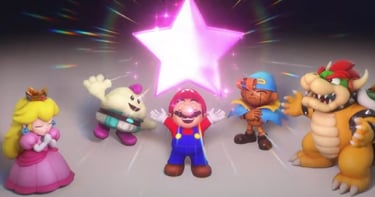

On 6-21-23, Nintendo had its latest “Nintendo Direct,” that semi-regular webcast that keeps the Faithful fed in regards to the company’s upcoming games, projects, events, and other surprises. It’s essentially a press conference without the press—unlike Apple and other tech outfits that love filling seats with adoring spectators offering free, tangible (and marketable) excitement, Nintendo goes the prerecorded route. In short, it’s a clean but very canned presentation of what Nintendo wants its souls to know.
Yes, not Nintendo fans, but the Nintendo Faithful...those devout and unquestioning droves. I use that specific phraseology here because that’s what these media events have largely become—more than a corporate announcement, Nintendo Directs are religious pronouncements. Or better yet, religious revelation. Like a church or charity beckoning for donations to fight the next social crusade, Nintendo needs to keep its sheep—and really, their dollars—primed for spending.
And it doesn’t take much. Even small announcements, like a new character in Smash Bros. or a half-hearted remaster of a twenty-something-year-old game (Pikmin), can get the millions of Nintendo acolytes enthused. But when the more epic revelations drop, Nintendo’s legions unfurl a fervor that can only be described as, well, fanatical. As if God had just dusted a starving world with a swath of delicious manna, the fandom religiously and gratefully laps up everything the company delivers. Devoutly and, again, without question.
This time, the trumpets heralded two second comings…in a sense. The first is a remake of Super Mario RPG, that 1996 classic nearly lost beneath the stack of Paper Mario games that followed. That got fans jubilant.
But the second trumpet proved even more profound. Super Mario Bros. Wonder, the next 2-D platformer in the storied series, is set for an October 2023 release. And predictably, the Faithful fell prostrate in helpless ecstasy.
That’s how Nintendo wants it, of course. Like Disney, Nintendo grooms its congregation from birth to grave, offering Heaven, Hope, and Home in the form of Mario. And Zelda. And Animal Crossing.
Indeed, what soul can resist his childhood friends, and who’s audacious enough to dare denounce, let alone devour, his culture’s newfound sacred cows?
If God is dead, “religion” is stronger than ever. It just comes in the form of a corporation—a global, ever-pervasive church donning blue overalls and a bright red cap.—D
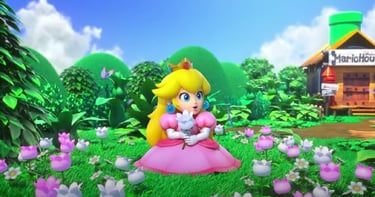

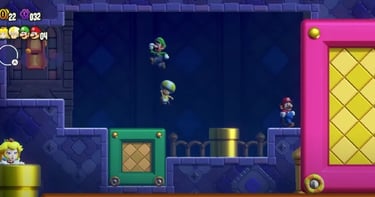

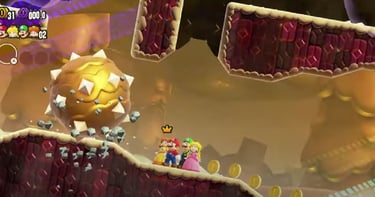

The vintage cast is back for the Super Mario RPG remake. And for better or worse, it seems an especially faithful adaptation, improving only the visuals, audio, and other necessities.
Super Mario Bros. Wonder finally updates the New Super Mario Bros. formula with a greater emphasis on personality and artistic expression. Here, Peach plays "peach-a-boo" in the foreground.
Super Mario Bros. Wonder gets psychedelic this time, which seems to be its chief gimmick. It also retains the four-player gameplay of the New Super Mario titles, which is actually disappointing for those hoping for Super Mario World's more complex level design.
Contact: lostnostalgiaproductions@gmail.com
Website: www.lostnostalgia.com
Like what we're doing? Please consider throwing us a dollar into our Patreon page's tip jar!


